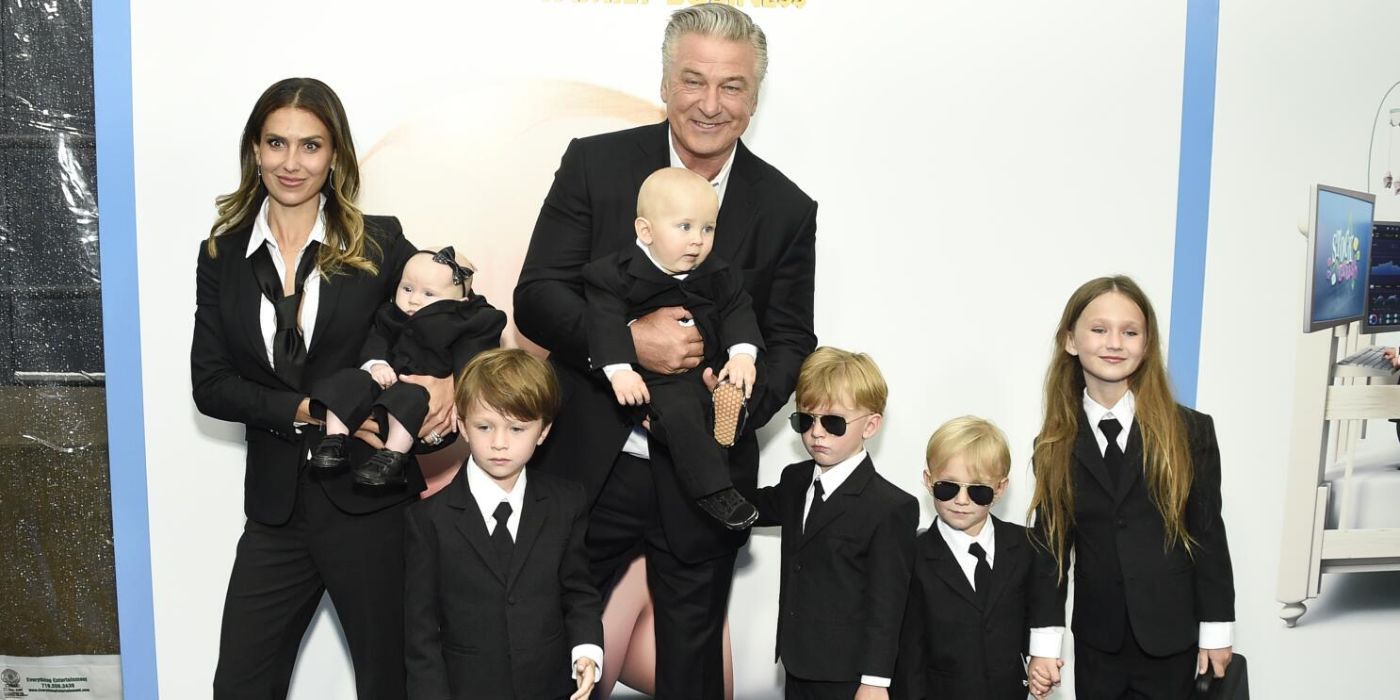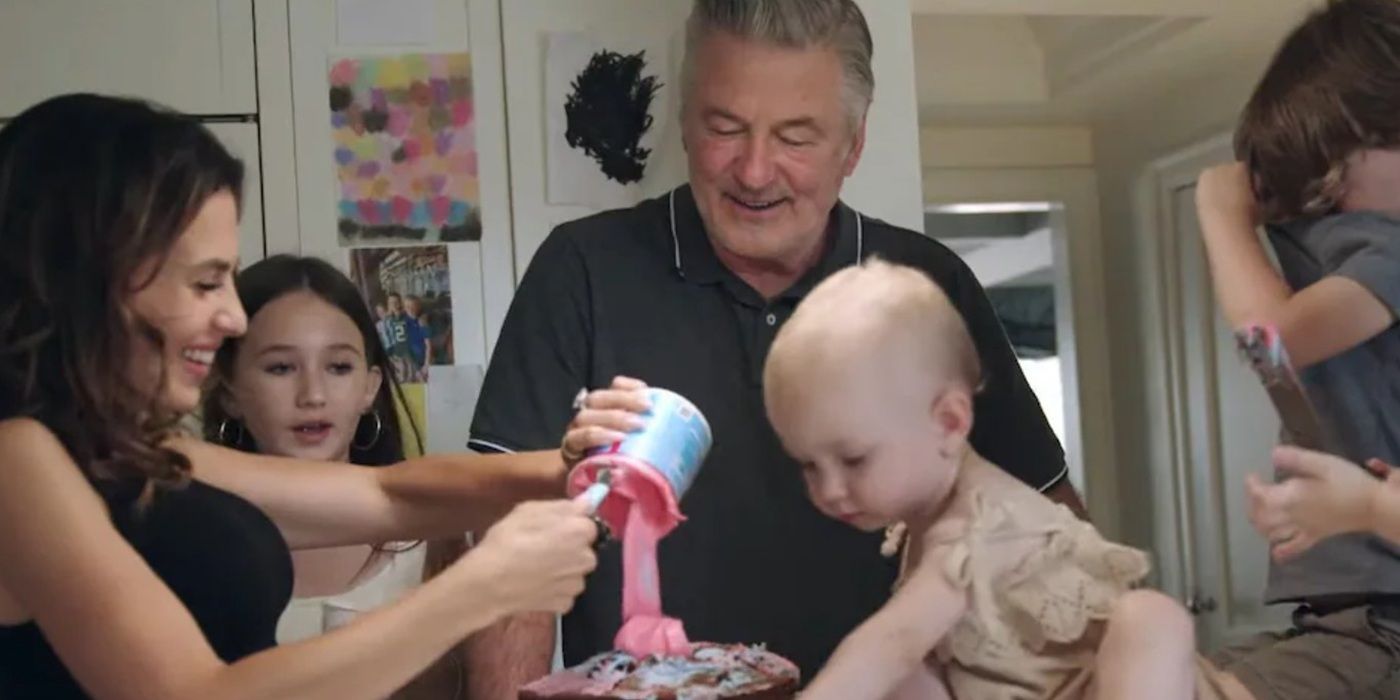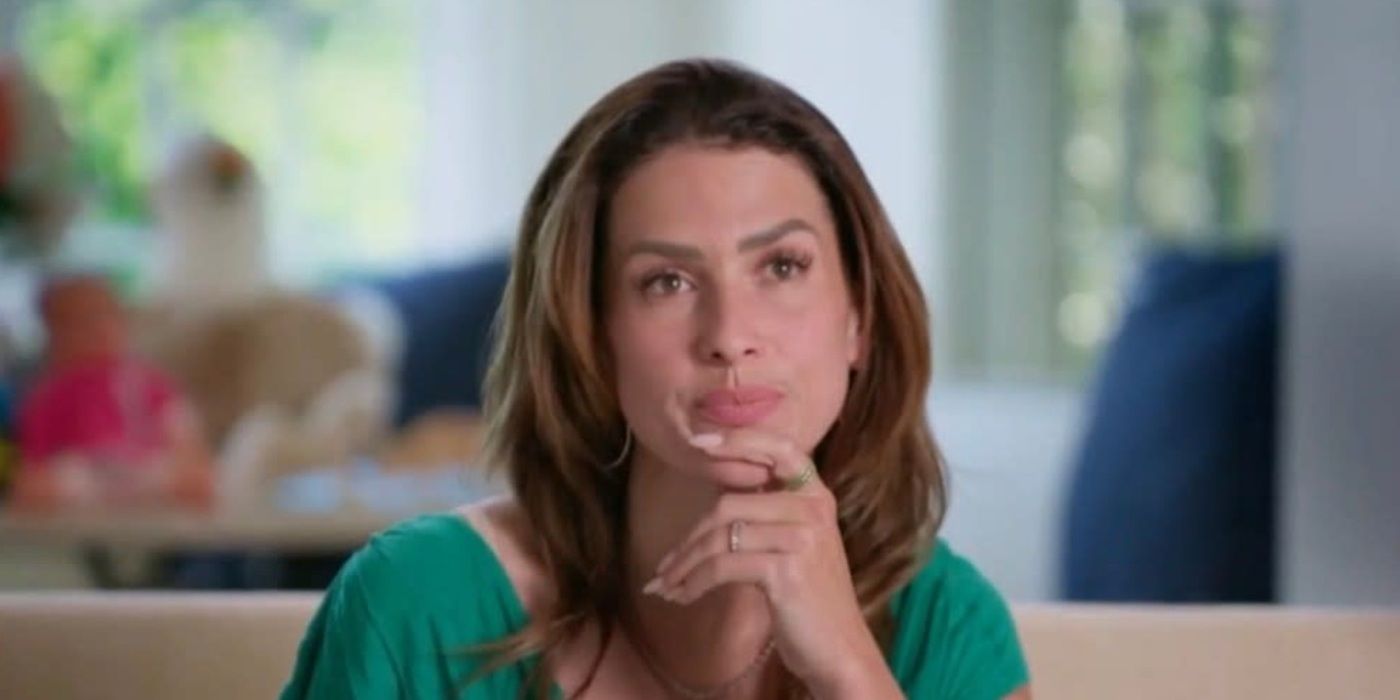This Has Got To Be the Most Tone-Deaf Moment on ‘The Baldwins’
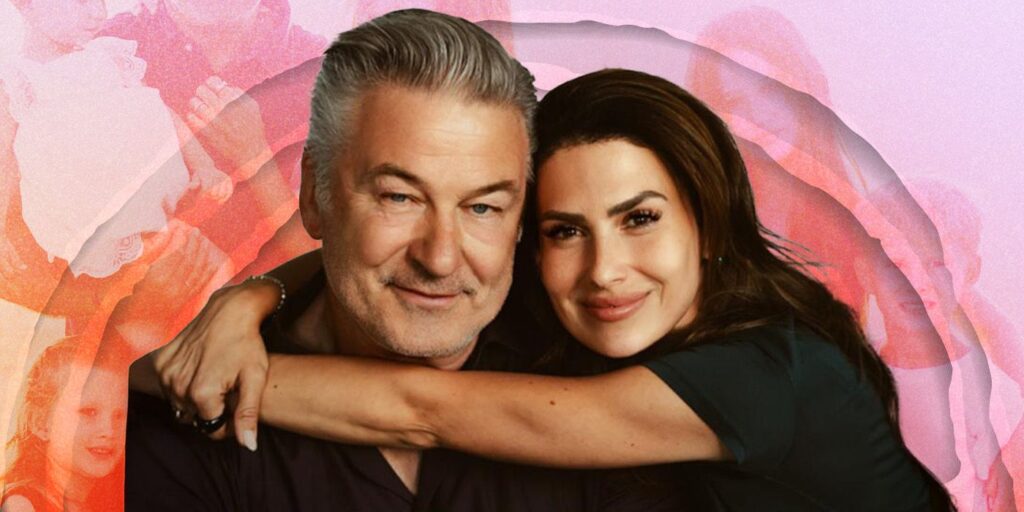
Last week, the finale episode of The Baldwins aired on TLC, wrapping the show’s first (and almost certainly final) season. From start to finish, The Baldwins has felt like a fever dream; a dissonant depiction of marital discord and a manslaughter trial set to the tune of a sitcom about a happy family. The show has been heaped with criticism since it was initially announced, but my morbid curiosity won, and I spent the last two months of Sundays locked in. Alec and Hilaria Baldwin mistakenly believed they could use a reality television show to rehabilitate their public image, which has been marred by repeated controversy. How spectacularly wrong they were.
When asked to write about the most tone-deaf aspect of this show, I wondered how I might pull that off without accidentally composing a novel. Easier, no doubt, to write about the moments which come off as remotely tone-sensitive – I could have simply turned in a blank sheet of paper and called it a day. The total absence of self-awareness on this show is astounding throughout every second of the series. I could write about the most painfully obvious insensitivity of The Baldwins – the show’s coverage of the accidental death of Halyna Hutchins, Alec’s involvement, and his ensuing trial. Or there are, of course, the garish displays of wealth – an entire episode centers around a $40,000 handmade Parisian rug that the family’s untrained breeder-bought puppies can’t stop using as a bathroom. But my favorite of all of Mr. and Mrs. Baldwin’s various strains of self-absorption has to be their parenting.
The Baldwin Kids Are Used as Props
The Baldwin children are accessories in the story of Hilaria and Alec Baldwin. Their personalities are almost nonexistent unless used to serve a storyline. All the kids are heavily featured but entirely one-dimensional; they are a tantrum, a tightly packed car, a ridiculous slang term their elderly father doesn’t understand. The Baldwins makes a meal out of showcasing each and every outburst or bad mood had by one of the children. During playtime, they are a glimmer of their father’s humanity as he trudges through a tragedy they cannot yet comprehend. They run around the family’s Greenwich Village penthouse screaming and making a mess; a setup to showcase Alec’s myriad mental illnesses, or Hilaria’s “how does she do it all?!” motherhood. They exist only as pawns in their parent’s performance.
These kids, who are between the ages of two and 11, are far too young to be able to consent to what’s happening here. They can’t conceptualize exactly what’s occurring when they’re followed around by camera crews, and they couldn’t possibly understand how far these images of themselves will be proliferated, or how hatefully strangers might respond to them. They can’t grasp the large sums of money involved in creating something like this, the money their parents will make off of their likenesses. Can you imagine if the most nascent, nine-year-old, vulnerable version of yourself were crystallized for all time for the world to see? One day, they will be adults, attempting to navigate the world, looking to find a partner with whom to have a small army of children, hawking cookbooks, or maybe adopting an exciting new culturally insensitive accent of their choosing. All the while, whether they like it or not, a document depicting eight intimate hours of their dysfunctional family life as a child will be available for anyone around them to view.

Related
What Alec Baldwin Can Learn From the Pitfalls of Reality TV
The Hollywood A-lister has an illustrious career, but it seems he has a lot to learn about unscripted television.
The Kids Are Offered Up for Public Consumption
Many of the children are asked to participate in confessional interviews, in which they sit on a couch and directly address the camera – this is the most obvious image of their exploitation. Behind the camera, their mother goads them into performing bits, sharing the family’s inside jokes, or hashing out their feelings about a private matter. It’s a gruesome sight. They are being trained from childhood for the same public consumption that is eating their father alive.
As the season unfolds, it becomes clear that Alec wishes to recede from the public eye; in one episode, the couple takes a car ride together as Alec struggles with how to recover from an impossible series of tragedies. This show seems to be a ship Hilaria is steering, and her husband frequently fantasizes about jumping overboard. “My wounds can’t heal while I stay in public life,” Alec tells his wife – and a car full of television cameras. More exposure, she believes, is what will solve their problems. It is fascinating to watch the adults grapple with the way they are perceived, and then offer more of themselves to the public.
Hilaria’s intent in agreeing to produce and star in this show is clear – this is how we correct the narrative and curry favor from our critics. She spends a shocking amount of the show’s runtime overexplaining what she believes to be drastic misconceptions about herself, her husband, and their family. Her children are props in that pursuit; through her interactions with her little ones, she sets out to prove that she and her family are decent, good-hearted people who have simply been smeared by the media.
‘The Baldwins’ Is a Clumsy Response to the ‘Rust’ Shooting
Of course, I can’t write about the tone-deafness of The Baldwins without acknowledging the tragic passing of Halyna Hutchins and the role it plays on the show. In 2021, on the set of the movie Rust, Alec fired a prop gun, which was, unbeknownst to him, loaded with live ammunition. The bullet struck and killed the film’s cinematographer, Halyna Hutchins. It’s difficult to fathom that anyone would have chosen to make her death fodder for reality television, and perhaps even more perplexing that Alec and Hilaria believed this to be the proper context in which to tell their side of this story.
Many believe The Baldwins to be a cruel commodification of her death, but it seems more likely that they are simply responding to it, albeit clumsily and with profound insensitivity. You can feel them flailing, desperately reaching for any way to reclaim the narrative. Alec has received relentless outrage regarding his involvement in the shooting, but surely, there are crew members meant to manage props and ensure safety on set who were far more responsible for this fatal misfire.
One of the clearest takeaways from the show is how profoundly Alec has been affected by firing the weapon that took the life of his coworker. He looks haggard, aged by this deep spiritual wound. He and his family deserve to feel that pain; they shouldn’t be punished for acknowledging that they, too, have been victimized by this tragedy. But they shouldn’t make a reality TV show about it, either.
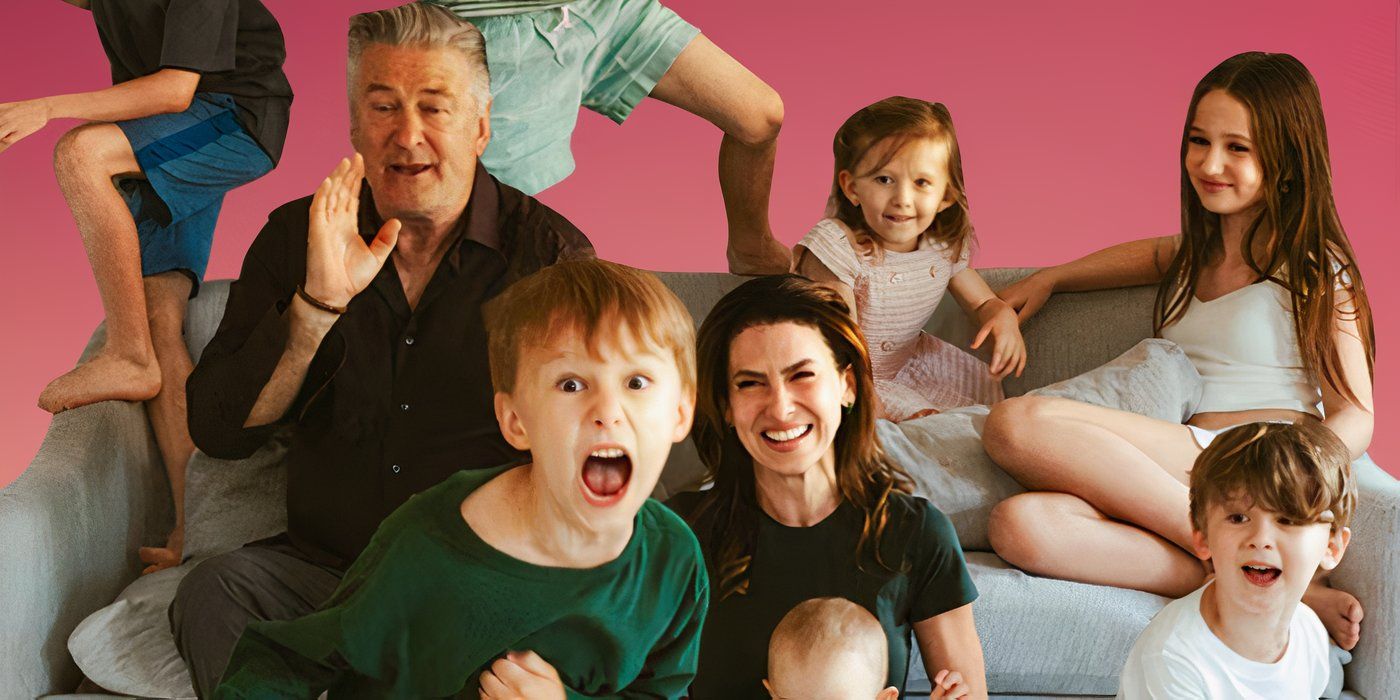
Related
Does Hilaria Baldwin Think Fans Are Stupid?
The children often serve as the audience proxy. Hilaria curates their experience amidst Alec’s trial, careful not to reveal too much of the darkness their family is navigating. Her efforts to maintain a facade of normalcy are painfully apparent. She ensures that, despite the circumstances, fun is always being had; there are puppies to play with, pools to splash around in, and potions to be made in the kitchen. In a confessional, Hilaria says, “You have to look at the kids, and you have to say, I’m going to put a smile on my face, and we’re going to fake it!” Hilaria keeps things light for the kids, and she attempts to shape that same perspective for the viewers.
To make a mostly cheery reality show about the aftermath of manslaughter is a confounding choice, but to exploit your kids to this extent is somehow even more disturbing. Every moment of this show is wildly out of touch, but leveraging your own children in an effort to convince others of your virtue is extraordinary. It’s nothing new; people have been peddling their progeny on screen for as long as reality television has existed. But the Baldwins commit to it with an unbelievable intensity. The show, intended to pull back the curtain and reveal real life in the Baldwin household, strives to create an image of a happy family doing their best, but the darkness beneath the surface seeps out unmistakably. The children are unwittingly made to do the work of covering up those grim undercurrents.

